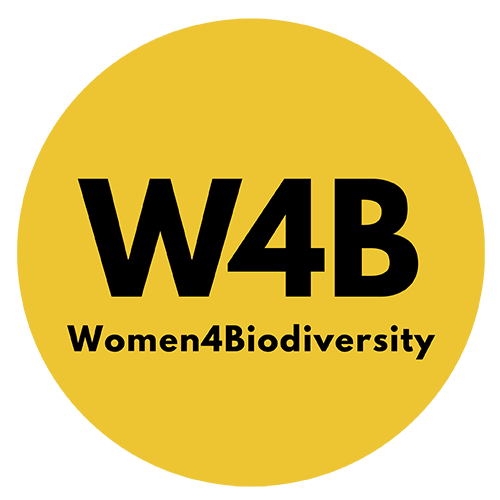𝐓𝐚𝐫𝐠𝐞𝐭 𝟐𝟏 : 𝐄𝐧𝐬𝐮𝐫𝐞 𝐓𝐡𝐚𝐭 𝐊𝐧𝐨𝐰𝐥𝐞𝐝𝐠𝐞 𝐈𝐬 𝐀𝐯𝐚𝐢𝐥𝐚𝐛𝐥𝐞 𝐚𝐧𝐝 𝐀𝐜𝐜𝐞𝐬𝐬𝐢𝐛𝐥𝐞 𝐓𝐨 𝐆𝐮𝐢𝐝𝐞 𝐁𝐢𝐨𝐝𝐢𝐯𝐞𝐫𝐬𝐢𝐭𝐲 𝐀𝐜𝐭𝐢𝐨𝐧
🤔 𝐖𝐡𝐚𝐭 𝐝𝐨 𝐲𝐨𝐮 𝐦𝐞𝐚𝐧 𝐛𝐲?
The main objective of this Target is to ensure that the best available biodiversity data, information and knowledge are readily available to decision-makers and other relevant actors to support informed biodiversity policy, planning and decision-making processes, as well as for monitoring, reviewing and reporting progress in implementation. The Target contains several elements that provide further specificity on how this should be accomplished and to what ends:
🌿 𝐈𝐦𝐩𝐫𝐨𝐯𝐞𝐝 𝐚𝐜𝐜𝐞𝐬𝐬𝐢𝐛𝐢𝐥𝐢𝐭𝐲 𝐭𝐨 𝐫𝐞𝐥𝐞𝐯𝐚𝐧𝐭 𝐛𝐢𝐨𝐝𝐢𝐯𝐞𝐫𝐬𝐢𝐭𝐲 𝐝𝐚𝐭𝐚, 𝐢𝐧𝐟𝐨𝐫𝐦𝐚𝐭𝐢𝐨𝐧 𝐚𝐧𝐝 𝐤𝐧𝐨𝐰𝐥𝐞𝐝𝐠𝐞: Decision- makers, practitioners and the general public should be able to access relevant data, information and knowledge in an easy, efficient and timely manner and in appropriate formats. Improved accessibility can be achieved in in different ways, including through increasing the level of standardisation and interoperability among existing data, tools and platforms, digitization of existing information, and putting in place policies, such as for open-access and open data, to facilitate and support easier access.
🌿 𝐂𝐨𝐦𝐦𝐮𝐧𝐢𝐜𝐚𝐭𝐢𝐨𝐧, 𝐚𝐰𝐚𝐫𝐞𝐧𝐞𝐬𝐬-𝐫𝐚𝐢𝐬𝐢𝐧𝐠, 𝐞𝐝𝐮𝐜𝐚𝐭𝐢𝐨𝐧: Biodiversity data, information and knowledge are essential elements for effective communication, awareness and education measures. Understanding, awareness and appreciation of the diverse values of biodiversity underpin the willingness of individuals to make the necessary changes and actions and to enhance the “political will” of governments and other actors to take action.
🌿 𝐊𝐧𝐨𝐰𝐥𝐞𝐝𝐠𝐞 𝐦𝐚𝐧𝐚𝐠𝐞𝐦𝐞𝐧𝐭:Knowledge management refers to processes for creating, discovering, collecting, organising, curating, storing, sharing and using relevant knowledge, information and data. Efforts to increase capacities in this regard are needed. These could include efforts to improving institutional capacity, facilitating accessibility to and training in the use of relevant digital technologies, and institutionalisation of data, information and knowledge management.
🌿 𝐌𝐨𝐧𝐢𝐭𝐨𝐫𝐢𝐧𝐠: Effective monitoring, including the use of indicators, depends on the availability of good quality data, information and knowledge. There is a need to establish or strengthen existing national biodiversity information systems and biodiversity observatory centres and networks that could support both national and international biodiversity monitoring needs and commitments.
🌿 𝐑𝐞𝐬𝐞𝐚𝐫𝐜𝐡: Greater support for research and innovation will be required to generate the data, information and knowledge necessary to achieve most targets. This includes research in effort to address biodiversity knowledge gaps and major imbalances in the geographic and taxonomic focus of biodiversity studies and monitoring. There is a need to undertake analysis of the information gaps and establish research projects and guidelines to generate missing information and to increase the amount and quality of biodiversity information available for biodiversity planning, decision-making, monitoring and reporting.
🌿 𝐊𝐧𝐨𝐰𝐥𝐞𝐝𝐠𝐞, 𝐢𝐧𝐧𝐨𝐯𝐚𝐭𝐢𝐨𝐧𝐬, 𝐩𝐫𝐚𝐜𝐭𝐢𝐜𝐞𝐬 𝐚𝐧𝐝 𝐭𝐞𝐜𝐡𝐧𝐨𝐥𝐨𝐠𝐢𝐞𝐬 𝐨𝐟 𝐢𝐧𝐝𝐢𝐠𝐞𝐧𝐨𝐮𝐬 𝐩𝐞𝐨𝐩𝐥𝐞𝐬 𝐚𝐧𝐝 𝐥𝐨𝐜𝐚𝐥 𝐜𝐨𝐦𝐦𝐮𝐧𝐢𝐭𝐢𝐞𝐬: Many indigenous peoples and local communities are holders of unique traditional biodiversity knowledge. Similarly, many have developed innovations, practices and technologies relevant to the conservation and sustainable use of biodiversity. This knowledge and these innovations, practices and technologies should only be accessed with the free, prior and informed consent of indigenous peoples and local communities, in accordance with national legislation.
🌿 To learn more about all 23 Targets, please visit: https://www.cbd.int/gbf/targets

